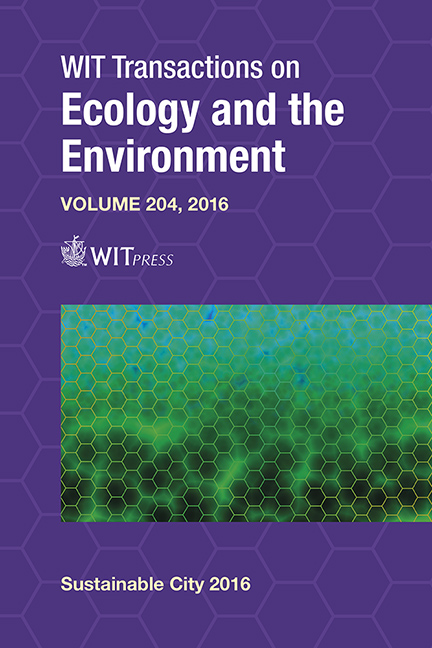Redefining Sustainable Values Using A Case Study From Indonesian Cities
Price
Free (open access)
Transaction
Volume
204
Pages
10
Page Range
821 - 830
Published
2016
Size
845 kb
Paper DOI
10.2495/SC160671
Copyright
WIT Press
Author(s)
I. Hidayati
Abstract
Sustainability values are often associated with the three pillars of economic growth, social equity, and environmental conservation. However, the definition comes with the unspoken disclaimer, that the achievement of these sustainability values must be within a well-established system (social, political, and economic system). Yet, in developing countries, the social, political, and economic system is different to its counterpart, besides they are still struggling with economic growth and so less consideration has been given to other pillars. Consequently, the use of this world-wide definition of sustainability values has resulted in a less-sustainable level for most cities in developing countries. On the other hand, cities in these emerging countries have other values which are rarely considered as “sustainable”. For example, informal street markets in developing cities, which are often accused as being the main cause for traffic congestion, are in fact similar to the shared-street concept emerging in cities in developed countries. This paper explores the “other” and “hidden” sustainability values from Indonesian cities thus serving as the basis for redefining sustainability values in developing countries. The exploration is based on de facto observation of Indonesia cities, and is described by employing a qualitative approach. The main result of this study indicates that “informality” can be considered as part of social equity which also contributes to economic growth and local wisdom as part of environmental conservation.
Keywords
sustainability values, informality, local wisdom, sustainability in developing countries





